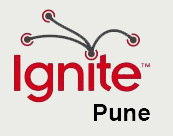Update: At this meeting (which is now over), it was decided to form various sub-committees that will work on different aspects of TEDxPune. If you’re interested, please sign-up here.
A group of volunteers has been formed to put up a TEDx program in Pune later this year. And, since we would like to put up a world class show, we need the help of a lot of volunteers to be able to achieve this. Please join the TEDxPune mailing list and help out. There will be a kickoff meeting this Saturday, 27th February, from 5pm to 7pm at SICSR (the Symbiosis Institute of Computer Studies and Research, Model Colony. Map: http://sadakmap.com/p/SICSR). Please attend. Anyone who is enthusiastic enough can attend. It’s free.
What is TEDx?
This is a TED video of Sendhil Mullianathan talking about how we are unable to solve “simple” problems like diarrhoea, inspite of the fact that we “know” how to solve them. This is an example to give you an idea of what a TED talk is. Click here if you’re unable to see the embedded video. Another example is the famous “Sixth Sense” talk by Pranav Mistry (a must see, if you haven’t seen it)
TEDx is a local version of the TED program. You might have already heard of TED, or have seen some TED videos. TED is non-profit group that holds conferences all over the world with the single intention of spreading the most inspiring ideas to the widest audience. TED believes in the power of ideas to change attitudes, lives and ultimately, the world. So TED is creating a repository of ideas, in the form of talks given by some of the world’s most original and insightful thinkes, and videos and transcripts of these talks are disseminated freely to anyone who is interested. The name TED stands for “Technology, Entertainment and Design,” but overtime, the idea has grown to encompass any idea that can (or should) change the world.
TEDx is any locally organized conference that follows the TED guidelines. A TEDx can be a half day or a full day event consisting of talks by various invited, carefully selected speakers. No talk can be over 18 minutes in length. The talks should be cross-disciplinary, and must go over a wide range of topics. And there should be nothing other than these talks. No panels, no break out sessions, nothing. Just talks, and discussions. And we would really like the talks to be mindblowing. Something that will spur the audience into action. Or fill them with wonder.
I am sure there are many, many such people in Pune. But we need your help in finding them. Some of the potential speakers are well known, established names. Like Jayant Narlikar; or Arvind Gupta. We will try to get people like those; but in addition, we would like to find young and upcoming not-so-well-known speakers who have the passion and new ideas that will inspire the next generation.
Will you help us find them? If yes, please come for the meeting on 27th. And join the TEDxPune group. (or follow @TEDxPune on twitter).
![Reblog this post [with Zemanta]](http://img.zemanta.com/reblog_b.png?x-id=5ab92bc9-bdb6-4963-a367-088f1b3e274c)

![Reblog this post [with Zemanta]](http://img.zemanta.com/reblog_b.png?x-id=25b0b1a8-78c6-42b5-ae91-a27440ddb3e1)
![Reblog this post [with Zemanta]](http://img.zemanta.com/reblog_b.png?x-id=1da31176-5638-4220-943e-58ad0392f46e)


![Reblog this post [with Zemanta]](http://img.zemanta.com/reblog_b.png?x-id=fb7fba18-4862-4db3-9b63-320aa2ec3046)

![Reblog this post [with Zemanta]](http://img.zemanta.com/reblog_b.png?x-id=95f76777-a2b1-4bc6-a563-406673eb0eac)